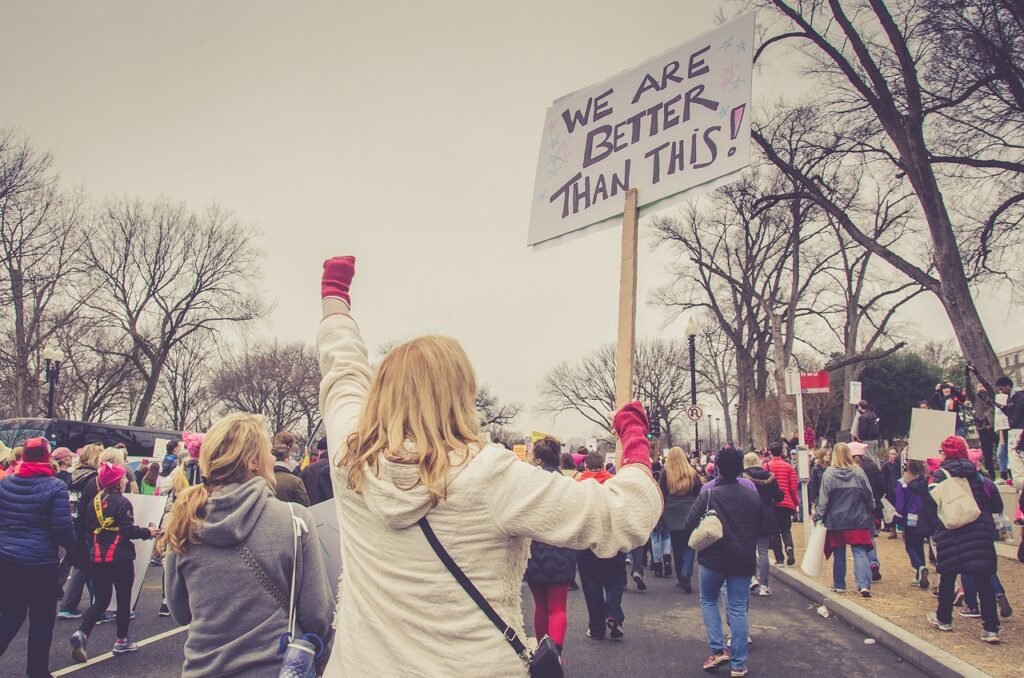TL;DR:
- Companies that have been boycotted include Nike (2018, sweatshops and Kaepernick ad), Chick-fil-A (2012, anti-LGBTQ donations), Starbucks (2018, racial profiling), Facebook (2020, privacy issues), and Amazon (labor and environmental concerns).
- Boycotts impact company finances, reputation, and policies.
- Social media amplifies boycott efforts.
- Effectiveness varies, with some leading to policy changes while others fizzle out.
- Boycotts showcase consumer power in shaping corporate behavior.
Ever notice how certain companies that have been boycotted push the limits of political correctness, and yet seem surprised when consumers push back? The truth is, more and more companies are jumping on the woke bandwagon, and customers are using their wallets to send a message. Boycotts are a powerful way for freedom-loving Americans to say “enough is enough.” Let’s dive into some major companies that have been boycotted and examine why their actions led to consumer outrage.
Why Boycotts Happen: Pushing Back on Woke Ideologies
Boycotts often occur when companies put politics over their products, choosing to prioritize divisive social issues instead of serving their customers. Many companies that have been boycotted have gone all-in on progressive causes, and that’s exactly why consumers are taking a stand. When companies decide to get political, they shouldn’t be surprised when customers turn their backs.

Take Nike, for instance. In 2018, they chose to make Colin Kaepernick the face of a major ad campaign. Kaepernick, known for kneeling during the national anthem, sparked a nationwide controversy that divided Americans. Many saw Nike’s move as a blatant political statement against the values that this country was built on. As expected, Nike faced widespread boycotts from patriotic customers who couldn’t stomach the disrespect for the flag. While Nike may have thought they were being bold, they ended up alienating a massive portion of their customer base—people who just want to buy a good product, not be preached to about politics.
Chick-fil-A: Standing Up for Traditional Values
One of the most famous examples of companies that have been boycotted is Chick-fil-A. The fast-food chain has long stood by traditional family values, but in 2012, those values came under attack when it was revealed that Chick-fil-A had donated to organizations that support traditional marriage. The left immediately pounced, labeling the company “anti-LGBTQ” and launching boycotts to pressure them into changing their stance. While Chick-fil-A scaled back some of its donations, it lost the support of many loyal customers who appreciated their commitment to traditional American values.
Starbucks: Letting Social Justice Override Service
In 2018, Starbucks faced a major boycott after a racial profiling incident in one of its Philadelphia stores. Instead of addressing the situation directly, the company decided to close over 8,000 stores for a full day of “racial bias training.” This knee-jerk reaction not only cost the company millions but also made many customers feel like Starbucks was more interested in virtue-signaling than being a coffee shop. For those tired of being bombarded by corporate social justice agendas, Starbucks became yet another example of companies that have been boycotted for choosing politics over quality service.
Facebook: Privacy Breaches and Political Bias
Another giant among companies that have been boycotted is Facebook. The social media platform has faced repeated boycotts, most notably during the 2020 “Stop Hate for Profit” campaign, when it came under fire for spreading misinformation and its handling of user data. Advertisers pulled their support, and users turned away, frustrated by Facebook’s lack of accountability and its obvious political leanings. Despite implementing new policies, the damage to its reputation continues, with many consumers refusing to return to the platform.

Amazon: Exploiting Workers While Pushing Climate Narratives
Amazon is no stranger to controversy either. The company has faced boycotts for everything from poor working conditions to its environmental impact. Workers have protested the harsh conditions in Amazon’s warehouses, while climate activists criticize its massive carbon footprint. The company’s response has been to announce new green initiatives and to claim they are improving labor conditions, but consumers remain skeptical. Many continue to boycott Amazon, seeing it as yet another example of a corporation more interested in appeasing the woke crowd than taking real action to fix its internal problems.
Final Thoughts
The rise of companies that have been boycotted shows us one important truth: consumers have the power to push back against woke agendas. Whether it’s Nike pushing controversial athletes, Chick-fil-A being targeted for upholding traditional values, or Facebook’s privacy scandals, boycotts remind us that where we spend our money matters. If companies want to play politics, they should be prepared to face the consequences. After all, we don’t have to buy what they’re selling.
So next time you see a company more interested in pushing an agenda than serving their customers, ask yourself: Do they deserve your hard-earned dollars?
FAQ
What are some “companies that have been boycotted” recently?
Nike, Chick-fil-A, and Facebook are some big names that have faced boycotts in recent years.
Why do people boycott companies?
People boycott for many reasons, like unfair worker treatment, environmental damage, or supporting causes they disagree with.
Do boycotts actually work?
Sometimes! Boycotts can lead to policy changes and make companies more aware of customer concerns.
How long do boycotts usually last?
It varies. Some boycotts last a few weeks, while others can go on for years.
Can I join a boycott?
Yes, anyone can join a boycott by choosing not to buy from a company and spreading the word about why.

